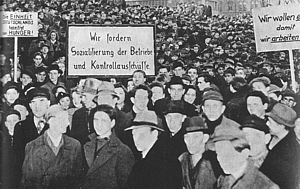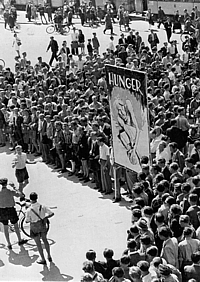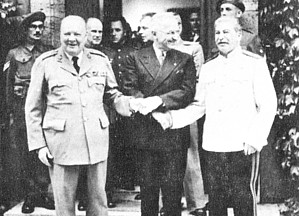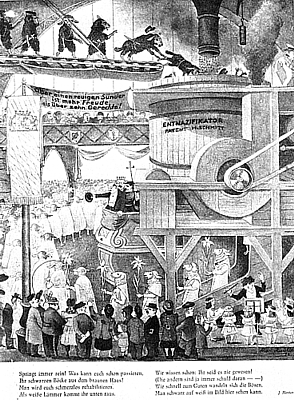|
Democratization
(back to top)
Democracy: socialist vs. capitalist conceptions
- Consensus on democracy as a goal at Potsdam conference, butů
- Soviet: based on economic equality first
- use of political parties to mediate interests
- example: NDPD for former Nazis--like legalizing drugs, brings
them into the open and makes them easier to monitor and control
- Western: one person, one vote--always equal no matter how powerful/influential
the person
- but many preferred the policies of communist and socialist groups,
and did not vote for the Western-friendly parties
- this led the US to annul or manipulate some elections (Fulbrook
1992, 140: Nazi elected mayor); Hesse state constitution delayed
- comparison to Iraq: don't want the pro-Saddam Hussein Bathists
and Sunnis in control (but need to have their support of the new
government); also don't want Saddam's main opponents, the Shiites
(also the dominant party in our headache country Iran), to create
a state according to their values, either.
In post-1945 Germany: don't want former Nazis in control, but need
their support; don't want the Nazi-opposing communists and socialists
to implement their ideas, either.
- Actual "third way" (Germans left to their own devices)
- example of the "Free Republic of Schwarzenberg" (Thuringia),
1984 book by Stefan Heym (wiki
Schwarzenberg page)
- county left unoccupied by both US and SU until July 1945
|
(at right) widespread dissatisfaction:
Munich students demonstrate again hunger, 1947
(below) strong
socialist movements, in all zones:
Ruhr miners demand socialization of factories, 1947
 |
 |
|



